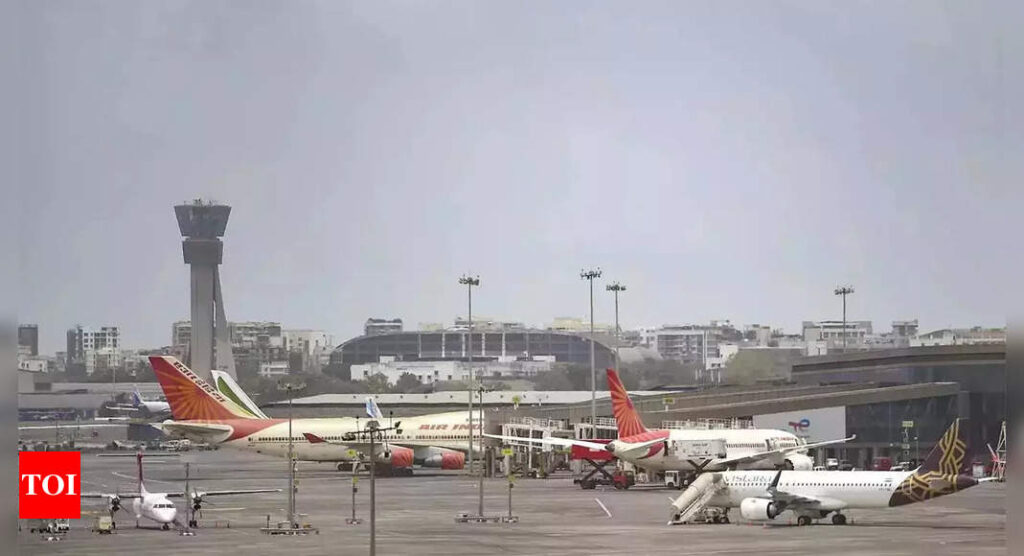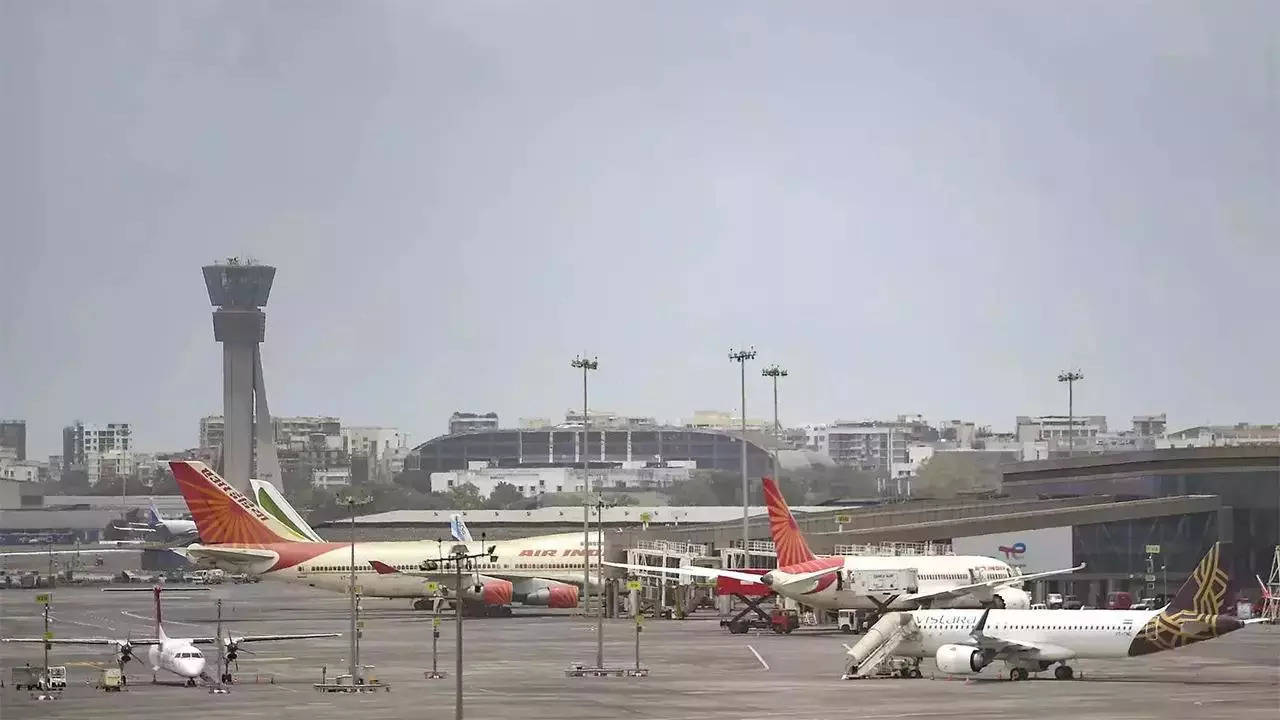[ad_1]
MUMBAI: A mental health initiative involving ‘peer support’ that has been adopted by air traffic controllers in over thirty countries is on its way to being established in India. Called ‘Critical Incident Stress Management’ (CISM) , its a system of crisis interventions in which trained peers will offer ‘psychological first aid’ and continued support to air traffic controllers involved in critical incidents so as to reduce the emotional and/or physical impact of the stressful episode.
Planned by Air Traffic Control Guild, the association that represents India’s air traffic controllers (ATCO), the initiative is in its planning stage. “The plan is to train, within a year, about 30 ATCOs across India, in the CISM module developed by the International Critical Incident Stress Foundation (ICISF), a US-based group that offers mental health training to first responders and people in critical jobs,” said a member of the ATC Guild on the occasion of International Air Traffic Controller day which was celebrated on October 20.
ICISF says: “CISM is a process that enables peers to help their peers understand problems that might occur after an event. This process also helps people prepare to continue to perform their services or in some cases return to a normal lifestyle” .
Having a stressful day at work can mean different things for different professions. For an air traffic controller, it could mean handling critical incidents such as a sudden radio communication failure during peak hour, handling a near miss or the worst, being the last person to speak to the pilots before the aircraft went off the radar as was the case with the 2010 Mangalore and 2020 Calicut accidents.
“A controller who had to handle a critical incident is taken off the radio channel. They go through an investigation. At such times they could feel isolated from friends and families, who might not understand the circumstances they’re in. Which is where the trained air traffic controllers, a peer group that provides psychological first aid through CISM comes in,” said the ATC Guild member. “The CISM system of support is meant to lessen the impact of the critical incident, normalize instinctive reactions to the incident, encourage the natural recovery process, restore the adaptive functioning skills of the person and determine the need for further supportive services of therapy,” he added .
The job of an air traffic controller is a stressful one as it entails quick-decision making, handling congested airspace, responding efficiently to aircraft emergencies etc. “Peers have a better understanding of the circumstances of the event, they are accepted more readily than, say, aviation psychologists or physicians,” said the Guild member. “Peers from the same occupational group appreciate the individual’s stress reactions better because they may even have experienced similar reactions,” he added. “The peer supporters listen, assess and refer when necessary to a licensed medical health practitioner who specialises in trauma. Trained peer supporters serve as a bridge to connect with the medical practitioner,” he said.
For the ATC Guild, India, what remains to be seen is the response of the Airports Authority of India (AAI) management. AAI runs an employment assistance program, but Guild members say that program’s objectives and aim is different from the role that a peer supporter could lend to a controller in tough times. “If you look at the cost-benefit analysis done by countries that have CISM for their air traffic controllers, you will see that the benefits outweigh the cost by atleast three times,” the member said. India, world’s third largest domestic aviation market, has around 3500 ATCOs and the numbers are set to rise in the coming years as the country’s airline industry is on a steep growth path with over 1100 aircraft on order and more to come.
“CISM has been adopted from 1998 onwards by ATCOs of countries such as the US, UK, Canada, Switzerland, Germany, Austria, Japan, Australia, New Zealand, etc,” said the senior air traffic controller. In certain countries such as Germany, for instance, it is mandatory for air traffic control to have a CISM peer support initiative, he added.
Germany witnessed one of its worst accidents in 2002 when a Bashkirian Airlines passenger jet and a DHL Boeing 757 cargo jet collided midair, killing 71, that is, all the passengers and crew onboard the two aircraft. The two aircraft were on collision course when the air traffic controller intervened and gave separation guidance to both the set of pilots. But by then both the aircraft’s on-board Traffic Collision Avoidance System (TCAS) had also issued a resolution advisory to avoid the conflict. Unfortunately, the TCAS advisory asking one aircraft to climb and the other to descend, that is was contradictory to the guidance given by the controller. The pilots were confused, one set of pilots followed the TCAS orders, the others followed the controller and the two aircraft collided midair. Two years later, the German air traffic controller who was on duty when the two aircraft had the mid air collision was murdered in an act of revenge by a Russian who lost his wife and two kids to the accident.
Planned by Air Traffic Control Guild, the association that represents India’s air traffic controllers (ATCO), the initiative is in its planning stage. “The plan is to train, within a year, about 30 ATCOs across India, in the CISM module developed by the International Critical Incident Stress Foundation (ICISF), a US-based group that offers mental health training to first responders and people in critical jobs,” said a member of the ATC Guild on the occasion of International Air Traffic Controller day which was celebrated on October 20.
ICISF says: “CISM is a process that enables peers to help their peers understand problems that might occur after an event. This process also helps people prepare to continue to perform their services or in some cases return to a normal lifestyle” .
Having a stressful day at work can mean different things for different professions. For an air traffic controller, it could mean handling critical incidents such as a sudden radio communication failure during peak hour, handling a near miss or the worst, being the last person to speak to the pilots before the aircraft went off the radar as was the case with the 2010 Mangalore and 2020 Calicut accidents.
“A controller who had to handle a critical incident is taken off the radio channel. They go through an investigation. At such times they could feel isolated from friends and families, who might not understand the circumstances they’re in. Which is where the trained air traffic controllers, a peer group that provides psychological first aid through CISM comes in,” said the ATC Guild member. “The CISM system of support is meant to lessen the impact of the critical incident, normalize instinctive reactions to the incident, encourage the natural recovery process, restore the adaptive functioning skills of the person and determine the need for further supportive services of therapy,” he added .
The job of an air traffic controller is a stressful one as it entails quick-decision making, handling congested airspace, responding efficiently to aircraft emergencies etc. “Peers have a better understanding of the circumstances of the event, they are accepted more readily than, say, aviation psychologists or physicians,” said the Guild member. “Peers from the same occupational group appreciate the individual’s stress reactions better because they may even have experienced similar reactions,” he added. “The peer supporters listen, assess and refer when necessary to a licensed medical health practitioner who specialises in trauma. Trained peer supporters serve as a bridge to connect with the medical practitioner,” he said.
For the ATC Guild, India, what remains to be seen is the response of the Airports Authority of India (AAI) management. AAI runs an employment assistance program, but Guild members say that program’s objectives and aim is different from the role that a peer supporter could lend to a controller in tough times. “If you look at the cost-benefit analysis done by countries that have CISM for their air traffic controllers, you will see that the benefits outweigh the cost by atleast three times,” the member said. India, world’s third largest domestic aviation market, has around 3500 ATCOs and the numbers are set to rise in the coming years as the country’s airline industry is on a steep growth path with over 1100 aircraft on order and more to come.
“CISM has been adopted from 1998 onwards by ATCOs of countries such as the US, UK, Canada, Switzerland, Germany, Austria, Japan, Australia, New Zealand, etc,” said the senior air traffic controller. In certain countries such as Germany, for instance, it is mandatory for air traffic control to have a CISM peer support initiative, he added.
Germany witnessed one of its worst accidents in 2002 when a Bashkirian Airlines passenger jet and a DHL Boeing 757 cargo jet collided midair, killing 71, that is, all the passengers and crew onboard the two aircraft. The two aircraft were on collision course when the air traffic controller intervened and gave separation guidance to both the set of pilots. But by then both the aircraft’s on-board Traffic Collision Avoidance System (TCAS) had also issued a resolution advisory to avoid the conflict. Unfortunately, the TCAS advisory asking one aircraft to climb and the other to descend, that is was contradictory to the guidance given by the controller. The pilots were confused, one set of pilots followed the TCAS orders, the others followed the controller and the two aircraft collided midair. Two years later, the German air traffic controller who was on duty when the two aircraft had the mid air collision was murdered in an act of revenge by a Russian who lost his wife and two kids to the accident.
[ad_2]
Source link











More Stories
Congress replaces Kamal Nath, names an OBC as Madhya Pradesh chief | India News
Fire breaks out in ITBP camp in Srinagar; none hurt | India News
Parliament Security: Co-villagers give clean chit to Lalit Jha, parents to move court | India News